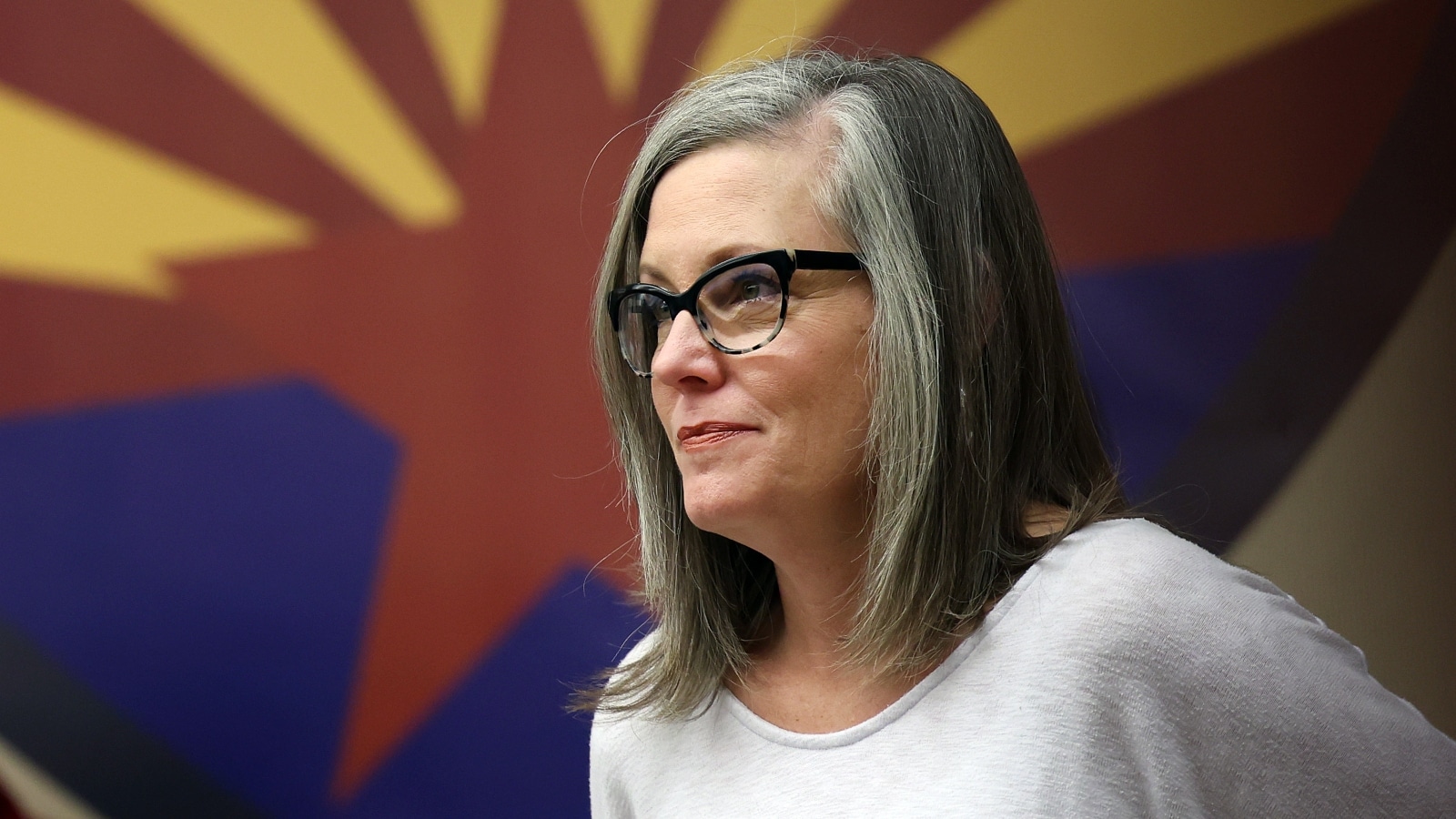OPINION: This article may contain commentary which reflects the author's opinion.
Whatever era the election of Democratic Gov. Katie Hobbs in Arizona was supposed to usher in, it certainly wasn’t “unity.”
Since taking over from GOP Gov. Doug Ducey following a controversial 2022 election, Hobbs has been butting heads with the state’s Republican legislature, rejecting more bills than any Copper State governor who came before her. And in a record amount of time.
And on Friday, she vetoed several more pieces of legislation the GOP legislature sent her, including four measures Republicans said were aimed at providing more election “transparency,” bringing the total of vetoed bills to 99, according to The Epoch Times.
One measure known as Senate Bill 1135 aimed to remove Arizona from the Electronic Registration Information Center (ERIC) and transfer voter registration to a “contracted third party.” Additionally, the bill mandated the use of blue or black pens for filling out ballots.
Hobbs claimed that ERIC improves transparency.
“I have vetoed SB 1135. This bill would prohibit Arizona from remaining a part of the Eletronic Registration Information Center (ERIC), which is an essential tool in ensuring accurate voter registration rolls in Arizona and across the country. It is unfortunate that many Republicans in the Legislature … send to my desk a bill that would prevent Arizona from joining organizations that actually help improve the integrity of our elections,” she noted in the veto letter.
Senate Bill 1105, which proposed allowing election workers to count early ballots at polling sites on Election Day, was also rejected.
“The county recorder or other county officer in charge of elections shall do all of the following for the on-site tabulation of early ballots,” the bill proposed. Hobbs, in her veto letter, said that on-site tabulation would be “very difficult for election officials to implement.”
Among the four bills that were rejected, Senate Bill 1066 aimed to mandate the clear printing of “Not from a Government Agency” on envelopes of documents sent by voter registration organizations. Senate Bill 1180 sought to prohibit organizations from compensating employees based on the number of voter registrations they gather.
Arizona state Senator John Kavanagh, who serves as President Pro Tempore and was a primary sponsor of two of the rejected bills, expressed his disappointment with the governor’s decision.
“I still stand on the side of transparency, and I’m sorry the governor wasn’t with me,” he told The Arizona Republic.
Republicans hold majorities in the Arizona House and Senate, but they do not have enough votes to override any of Hobbs’ vetoes without Democrats joining them, which isn’t likely.
The Epoch Times noted further:
Most of the bills she rejected contained conservative-leaning measures.
The long list of bills rejected by Hobbs includes a bill banning critical race theory in K-12 public schools, a bill that would have eliminated food tax, a bill that requires infants born alive during an abortion to be protected and provided the proper medical treatment, and a bill that would have protected pregnant women from being attacked during pregnancy.
When vetoing Senate Bill 1600—a bill that proposed to protect born-alive babies after abortion—she claimed that the bill was unanimously opposed by the medical community and would interfere with the relationship between a patient and doctor.
Last week, an Arizona judge rejected Republican gubernatorial candidate Kari Lake’s last remaining legal claim in her lawsuit challenging her loss to Hobbs in the 2022 midterm election.
Maricopa County Superior Court Judge Peter A. Thompson ruled late on Monday night that Lake’s team did not provide definitive evidence that the signature review process for mail-in ballots in Maricopa County was tainted by misconduct.
“The Court finds that looking at signatures that, by and large, have consistent characteristics will require only a cursory examination and thus take very little time,” Thompson said.
